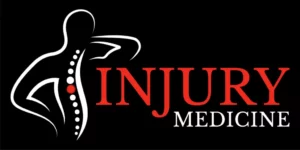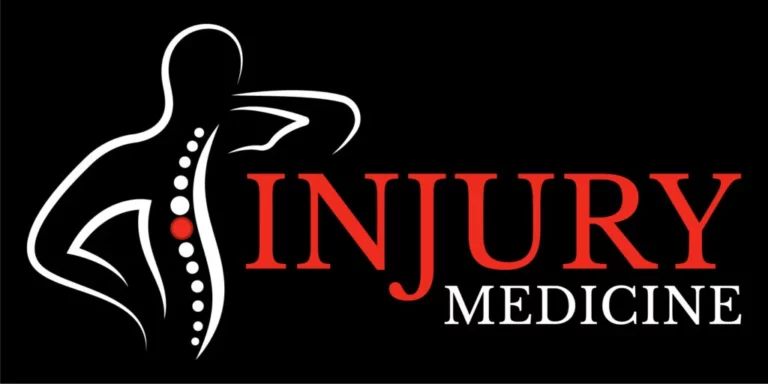Whiplash is a common injury that can occur in car accidents in Camden, resulting from the sudden and forceful movement of the neck and head. Although whiplash is not typically life-threatening, it can cause significant pain and discomfort and lead to long-term health consequences.
If you have been involved in an accident in Camden and have experienced a whiplash injury, it is crucial to seek medical attention promptly. At Injury Medicine in Camden, we specialize in treating whiplash injuries and providing personalized care to help manage pain and promote healing.
To schedule an appointment for whiplash injury treatment at Injury Medicine, call us at 864-866-PAIN. Our experienced physicians can provide a thorough evaluation to diagnose the extent of your whiplash injury and develop a customized treatment plan to address your specific needs.
What Is Whiplash?
Whiplash is a type of neck injury that occurs when the head is suddenly forced to move back and forth. The neck undergoes rapid and extreme flexion in a whip-like motion, hence the name. This sudden and forceful jerking can cause the neck to sustain a range of injuries, including strains and sprains.
What Causes a Whiplash Injury?
The primary cause of a whiplash injury is car accidents, particularly rear-end collisions. When one car collides into the back of another car, the impact can cause a sudden and forceful forward and backward movement of the head, resulting in strain to the neck muscles.
While car accidents are the most common cause of whiplash, other types of physical trauma can also result in this type of injury. For example, physical abuse or assault can cause sudden and forceful movement of the head, leading to whiplash.
In addition, falls and contact sports accidents, such as football or hockey, can also contribute to whiplash injuries. Any event or accident that causes the rapid back and forth movement of the head can potentially lead to whiplash injuries.
What Are the Common Symptoms of Whiplash?
It is essential to recognize the common symptoms of whiplash in order to seek prompt medical attention and begin treatment. However, it is important to note that whiplash symptoms are not always immediately apparent and can sometimes take several days or even weeks to manifest.
It is important to seek medical attention promptly if you experience any of the symptoms listed below following trauma to the neck or head:
Common whiplash symptoms include:
- Neck pain and stiffness
- Decreased range of motion of the neck
- Increased pain when you move your neck or head
- Fatigue or tiredness
- Dizziness or fainting
- Numbness or a tingling sensation in your arms
- Headache, usually at the base of the skull
- Buzzing or ringing in the ears
- Blurry vision
- Difficulty concentrating
Diagnosing Whiplash
Whiplash injuries are typically diagnosed based on symptoms and a history of trauma to the head or neck. The symptoms listed previously are used to diagnose whiplash. In some cases, a healthcare practitioner may order diagnostic imaging tests, such as a CT scan or MRI scan, to identify damage to the soft tissue in the neck. These tests can also be used to check for complications of whiplash, such as damage to the vertebrae or discs.
Individuals who experience severe neck pain, pain or numbness in the arms, or reduced neck movement may be recommended to undergo an MRI or CT scan. Additionally, those who are at risk of developing complications of whiplash may also need these scans. This includes car accident victims, the elderly, and those who already have pre-existing back, shoulder, or neck conditions.
What Are the Different Whiplash Treatments in Camden?
Whiplash is typically treated with a comprehensive treatment plan that includes a range of therapies and treatments. These may include:
At-Home Treatment
Resting and relaxing the neck is an essential part of whiplash treatment as it can reduce further strain on the neck and allow the injury to heal. Applying ice packs to the affected area can also help to minimize inflammation, reduce pain, and promote healing.
Pharmaceutical Treatments
Whiplash treatment may also involve medication to help manage pain and reduce inflammation. This may include prescription medications such as antidepressants to reduce nerve pain or muscle relaxants to help reduce muscle tension and spasms. Over-the-counter pain medications such as acetaminophen (Tylenol) or nonsteroidal anti-inflammatory drugs (NSAIDs) like ibuprofen can also be used to alleviate pain and swelling.
Nerve Blocks
Nerve block therapy, this involves injecting medication to block pain signals from reaching the brain. This treatment can provide pain relief or complete loss of feeling if a surgical procedure is required.
Exercises
As part of a comprehensive treatment plan for whiplash, your healthcare practitioner may prescribe exercises to gently stretch and strengthen the neck muscles. These exercises can help alleviate stiffness, reduce pain, and restore the neck’s range of motion.
- Gradually rotating your head from one direction to the other
- Lowering your head towards the chest and lifting it up
- Gently tilting your head from one side to the other
- You may get a physical therapist to help with working the neck and stretching to reduce stiffness and restore range of motion.
- Rolling one shoulder followed by the other and finally both shoulders
It is important to note that exercises should not be performed without first consulting a healthcare provider, particularly if you have a whiplash injury. It is also important to avoid any exercises that are not recommended by a physiotherapist or doctor until you have fully recovered.
Foam Collars
In some cases, your healthcare practitioner may prescribe a foam collar to wear around your neck following a whiplash injury. This can help to protect your neck from further strain and injury.
If a foam collar is prescribed by your healthcare provider, it is important to follow their instructions for use carefully. In general, these collars are typically only worn for a few hours a day or while sleeping to help stabilize the neck and reduce pain.
Radiofrequency Ablation
Radiofrequency ablation (RFA) is a medical procedure that involves using a special needle to heat a targeted section of a nerve responsible for transmitting pain signals. The heat generated by the needle creates a small lesion on the nerve, which can effectively block the transmission of pain signals to the brain. This can provide significant pain relief for patients suffering from chronic pain conditions.
Alternative Whiplash Injury Treatments at Injury Medicine
At Injury Medicine in Camden, SC, we offer a range of alternative treatments that can be used in combination with traditional medical care to provide effective pain relief and promote healing. Some of these treatments include:
Chiropractic Care – Our team of experienced professionals may utilize spine and joint manipulation techniques to alleviate neck pain caused by whiplash. These techniques involve applying controlled force to specific areas of the spine and joints to improve their alignment and restore their proper function.
Massage Therapy – Gentle massage is a common treatment option for individuals suffering from whiplash.
The number of treatments required for whiplash injuries can vary depending on several factors, such as the severity of the injury.
Get the Best Whiplash Injury Treatment in Camden!
At Injury Medicine, we believe in taking an integrated and holistic approach to treating whiplash injuries. We understand that whiplash can be a life-altering injury if left unaddressed, and that’s why we are committed to providing our patients with the best possible care.
Give us a call at 864-866-PAIN for immediate assistance with your whiplash injury.



